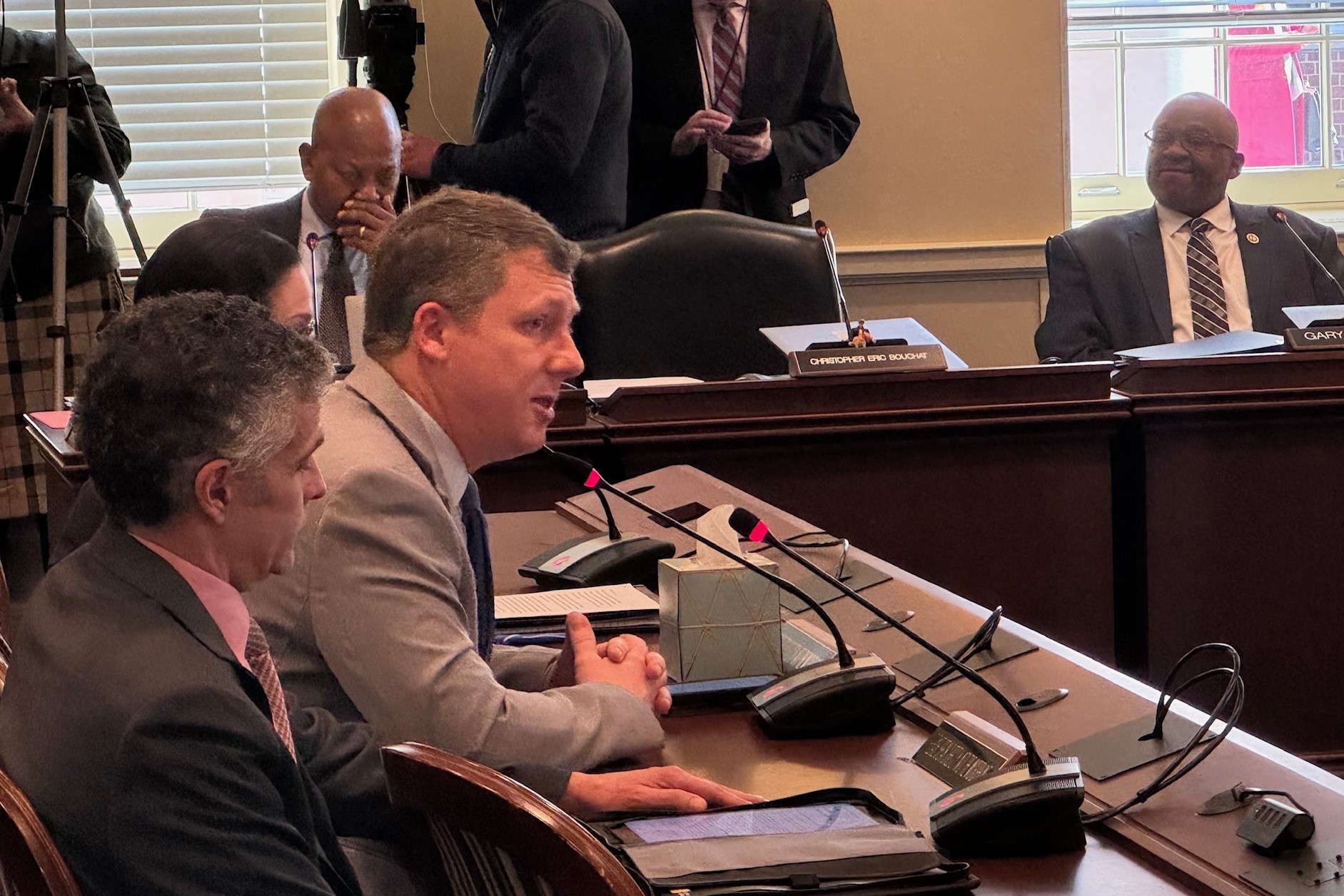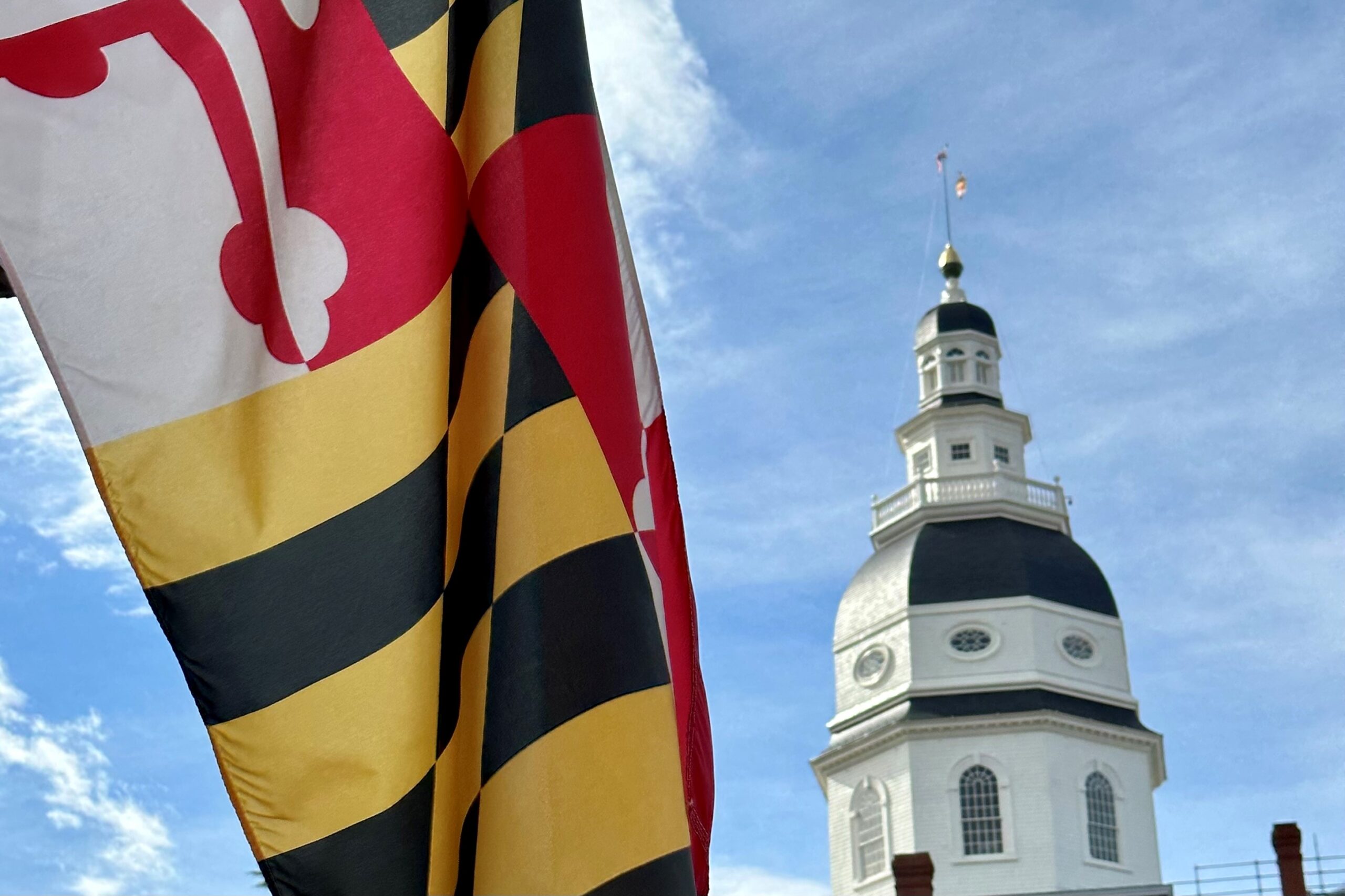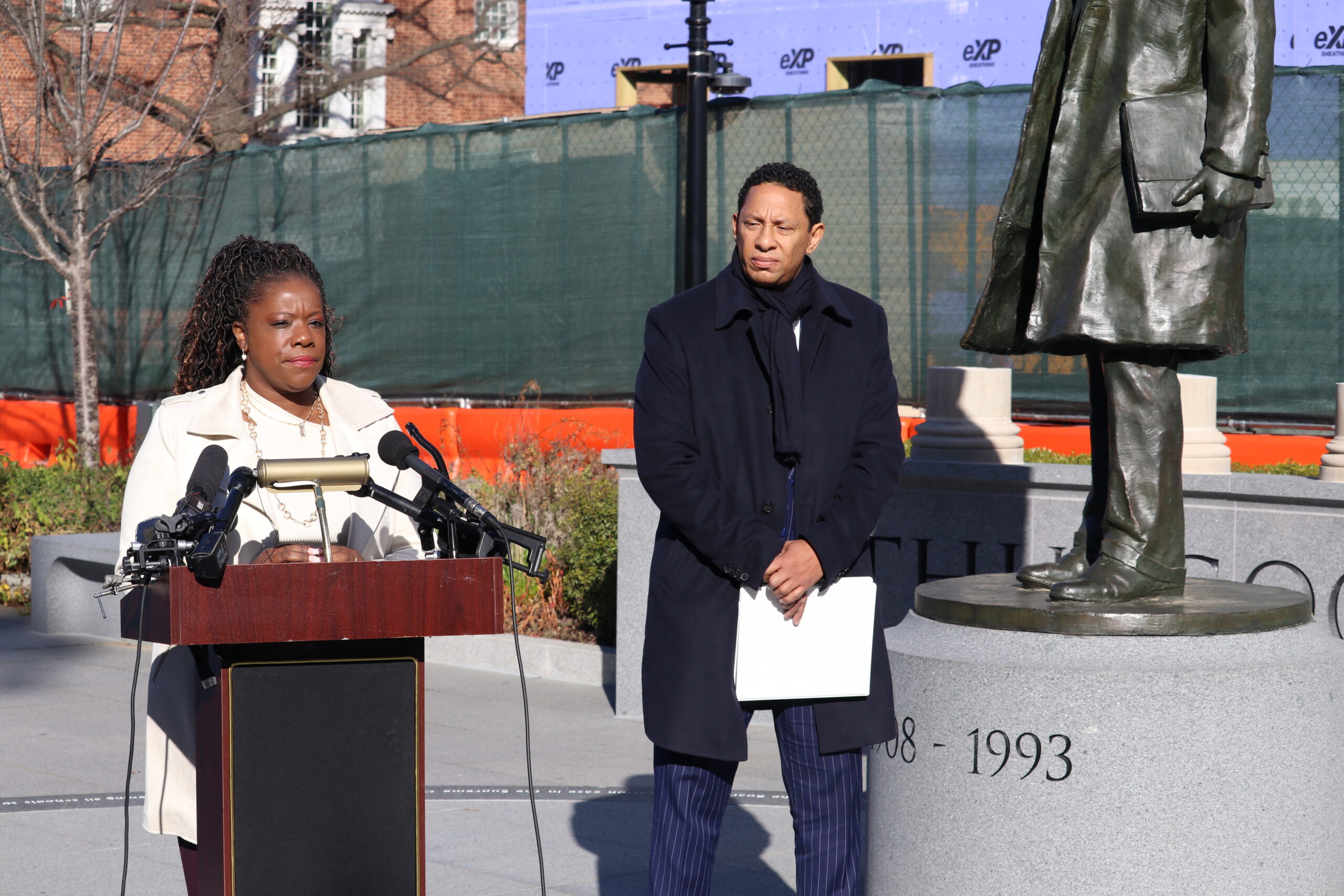
By Kate D’Adamo, Jessica Emerson and Leigh Goodmark
D’Adamo works on policy and advocacy with Reframe Health and Justice. Emerson is director of the Human Trafficking Prevention Project at the University of Baltimore School of Law. Goodmark is director of the Gender Violence Clinic at the University of Maryland Carey School of Law.
On March 1, Ivan Bates, a Democratic primary candidate for Baltimore City state’s attorney, released his plan for decreasing violent crime in Baltimore City. One change that Bates would make: to resume prosecution of prostitution, something Marilyn Mosby has discontinued as state’s attorney. Bates contends that such prosecutions would allow for positive intervention in the lives of victims of sex trafficking. He could not be more wrong.
Through our work, we have seen firsthand the impact of criminalization and policing on our clients and community, including people who have experienced trafficking.
When people who trade sex are profiled and policed, it leads to isolation and vulnerability, which only puts them at higher risk for being trafficked. For service providers and community groups, it can be harder to do outreach and build trust with individuals who are constantly surveilled and under threat of arrest.
Additionally, when sex workers and trafficking survivors twist their lives to avoid police interactions but still must make ends meet, it means moving into more isolated locations, not taking basic harm reduction steps like screening their clients thoroughly or becoming reliant on someone else to find them a source of income.
Criminalizing what is so often a choice to survive amongst a constrained number of other options means further harming some of the most vulnerable in our community.
For individuals trying to leave the sex trade, including those who are attempting to exit a trafficking situation, histories of criminalization are a barrier to reporting and accessing service providers. Long criminal records mean that finding safe housing or a living-wage job becomes almost impossible. Arrest can lead to the loss of custody of children and the denial of public benefits.
For survivors of trafficking and other forms of violence, arrest can also make it more difficult to heal from trauma. Policing and prosecution are a hinderance to supporting survivors of trafficking and violence, and arrests do not reduce the violence they face or provide them with the support they need; instead, this practice simply enables the violence that these individuals experience by exposing them to police abuses and the collateral consequences of a criminal record.
Even if an arrest is followed by a referral to a service provider, this does not undo the harm caused by policing and arrest. Instead, it perpetuates the trauma and violations of trust people who trade sex so often experience, and contributes to mistrust of service providers, especially those who are associated with law enforcement.
People who trade sex need approaches that center their autonomy and dignity, rather than a system that makes decisions about what they need without their input. Support may look like a place to stay that doesn’t discriminate, people who listen and don’t judge, or the long-term safety nets a person may need to leave the sex trade, when and if they are ready to do so.
This is true for people experiencing trafficking, as well. Arresting someone is one of the most ineffective ways to identify a trafficking survivor, and the data bears this out.
In a 2016 survey of human trafficking survivors conducted by the National Survivor Network, 80% of the almost 91% of survivors who reported an arrest history did not report that they had been trafficked at the time they were arrested. And because so few people identify as trafficking victims when they first encounter police, arrest most commonly leads to increased prosecution of trafficking survivors rather than their identification as victims.
This means even trafficking victims are sent back into the community with additional court costs, fines, fees and bail, and the long-term consequences of an arrest record. Outreach to victims of any crime should be grounded in self-determination and dignity, which is simply not possible during the process of arrest.
As a community, we can better support people who trade sex not by calling the police on them, but by calling on ourselves to support the building of trusting and nonjudgmental relationships outside of the criminal legal system.
People who trade sex, regardless of their reason for doing so, are part of our community, and deserve our respect and support. Arresting victims of violence, including victims of trafficking, only makes these experiences worse and harder to escape.
The Baltimore City State’s Attorney’s Office policy of not prosecuting prostitution is not driving the horrific wave of violence the city is currently enduring; in fact, a study by the Johns Hopkins Bloomberg School of Public Health found that the policy has actually led to fewer new arrests for prostitution, fewer 911 calls and very little recidivism. What resuming arrest policies will do is further traumatize victims of trafficking and create barriers to achieving short- and long-term safety and stability.
If Mr. Bates truly wants to help survivors of trafficking, keeping them out of the criminal legal system is a much better solution.




 Creative Commons Attribution
Creative Commons Attribution